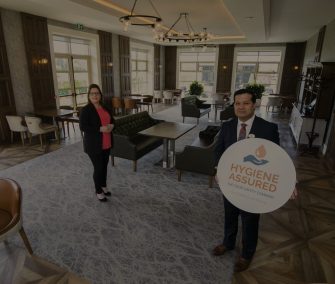Key Considerations for Safer Water in your Food Business
Food business operators have a responsibility for the quality of water used directly, e.g. as an ingredient in food production, or indirectly, e.g. in cleaning or processing during the manufacturing of food. The quality of the water used in food production must meet the basic standards governing the quality of drinking water, i.e. potable water intended for human consumption. Water quality regulations for food business operators are governed by the European Union (EU) and the national authorities. In Ireland, the Environmental Protection Agency (EPA) is responsible for monitoring and regulating water quality. Food business operators must comply with Drinking Water Regulations to ensure the safety and quality of water used in their establishments. Here are some key considerations:
EU and Irish Drinking Water Regulations.
Ireland must comply with EU Drinking Water Regulations, which sets the standards for the quality of water intended for human consumption. These regulations specify the maximum allowable levels for various contaminants, including microbiological, chemical, and indicator parameters. Uisce Éireann is responsible for supplying safe drinking water to consumers. Food business operators should receive water that complies with Uisce Éireann’s standards.
Water Source:
The source of water you use for food preparation, cleaning, and consumption must be safe and meet regulatory standards. The majority of drinking water used by food business operators in Ireland is supplied by:
Public Water Supplies – these water supplies are administered and maintained by 31 local authorities across Ireland on behalf of Uisce Éireann. They are responsible for testing and monitoring the water and the results are available on most local authority websites for water supplies in their geographical area or on the Uisce Éireann’s website. These results can be used by the food business operator to confirm that the quality of the water supply is compliant with EU Drinking Water Regulations. The relevant local authority is responsible for testing and monitoring the water up to the point of compliance *.
*After the point of compliance, the food business operator is responsible for the maintenance and verification of the quality of the water supply they use.
Group Water Schemes – these water supplies can be provided in areas where a local authority does not provide public water supply. A group water scheme can be set up by two or more properties coming together to provide their own drinking water supply either through public mains or through a private source (lake or groundwater source). Generally, the relevant local authority is not responsible for the maintenance of the water system, e.g. checking for leaks, or distribution network. However, it can be requested that the local authority take over the scheme and will then be responsible for maintaining the system. If the group water scheme remains private, it may get technical and grant assistance from the local authority for any necessary maintenance. The relevant local authority is responsible for testing and monitoring the water up to the point of compliance *.
Small Private Water Supplies – if a public water supply or group water scheme is not available, a small private water supply (private well) may be required. The relevant local authority will have the remit to test the quality of water, however, the food business operator is responsible for the maintenance and/or treatment of the small private water supply. Regular testing and treatment may be necessary to ensure compliance.
It is important to stay up to date on the latest regulations and guidelines related to water quality, as they may be subject to updates and changes over time. Regular training and education of staff regarding water safety and hygiene practices are essential to ensure compliance with these regulations.
- Ensure that employees have access to clean and safe water for handwashing, Proper handwashing is essential for food safety.
- Use clean and safe water for cleaning food contact surfaces, utensils, and equipment.
- Regularly monitor and test the water quality in your establishment to ensure it meets regulatory standards. Keep records of these test results as they may be required during inspections.
- Have a plan in place for emergencies that could affect water quality,
- Maintain records of all water quality tests, treatments, and actions taken to address water quality issues. They are required to demonstrate compliance with regulations.
TEL/TEFL
All food business operators are required to have a Trade Effluent License or Trade Effluent Fats Oils & Grease License. (FOG license). Currently, all establishments that require a FOG license are being inspected by Uisce Éireann.
Trade Effluent License – all food business operators that have a swimming pool on site.
Trade Effluent FOG License – all other food business operators.
FOG is generated from kitchens where food is prepared, cooked, or served. It should never be washed down the sink. If you are operating to best practice, you may already have a grease trap or grease removal unit. This should be serviced in accordance with the manufacturer’s recommendations, recording how your used cooking oil is recycled and keeping records of all maintenance and servicing. If you are operating a food service establishment, it is likely you are generating FOG.
Trade effluent is any liquid waste, other than surface water and domestic wastewater that is discharged from a premises. If you operate a food service establishment you produce trade effluent. Trade Effluent FOG Licences set out conditions that the food service establishment must comply with. If you do not have a Trade Effluent FOG License, you are only allowed to discharge domestic effluent which is typically wastewater from person washing, domestic, and toilet use. If trade effluent from your business is discharged to the sewer you need to apply for a Trade Effluent FOG Licence. This is a legal requirement in line with Section 16 of the Local Government (Water Pollution) Acts 1997 and 1990 as amended.
The Food Safety Company can help you stay compliant in all areas of your food business. For more information, get in touch here.


